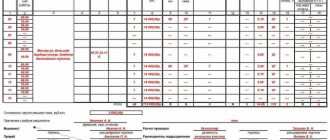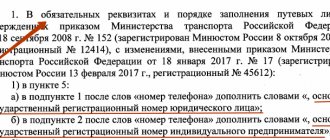It’s quite obvious that when you win your case, you want to quickly execute the decision, return the money and, for example, evict an unnecessary person from your apartment, or determine the order of communication with your child or his place of residence. In short, do everything you wanted to get in the end. And answer the very main question that you asked yourself before going to court, what do I want to get with a specific, pleasant and desired action.
However, once you receive a court decision in your favor and it comes into force, very often the fun is just beginning. Very often, the very execution of a court decision causes difficulties and problems for people.
The simplest thing we know is to take a writ of execution from the court, contact the bailiff service, and then the problem will probably be resolved. That's probably how it is. But only those who have experienced how the bailiff service works and what their workload is understand perfectly well that very often initiating enforcement proceedings is far from the solution to your problem.
Next, we propose to discuss other alternative options, what can be done in order to quickly receive money under the writ of execution.
What can you do if a writ of execution has been sent to work?
Opposition to the implementation of the executive document is illegal and entails the imposition of an administrative or property penalty. Hiding obligations to pay alimony or other debts from the administration will not lead to anything good. Over the entire period, debt will accumulate, which will have to be repaid, and on the most unfavorable terms, with payment of up to 70% of the money earned. The employee has the right to demand from the accounting department deductions in the amount determined by the court, without allowing deductions established by law. It does not have any other ways to influence retention or change the size. Only the court can reduce the amount of payments, under certain circumstances:
- the birth of a child in the payer’s new family;
- serious illness or disability due to injury;
- job loss;
- excess of total debt obligations 70% of income. In this case, payments are reduced proportionally.
Limit amount of deductions from wages
When withholding, it is necessary to take into account the provisions of Article 138 of the Labor Code of the Russian Federation. So, in particular, the total amount of all deductions for each payment of wages to an employee cannot exceed 20%, and in cases provided for by federal laws - 50% of wages due to the employee.
When deducting from wages under several executive documents, the employee must in any case retain 50% of the wages.
DEBT COLLECTION FROM LEGAL ENTITIES
What amount are they entitled to withhold?
The amount of deductions varies according to different documents.
For alimony workers, it depends on the number of children (parents) for whom maintenance is paid: 1–25%, 2–33%, 3 or more – 50%. The exception is the formation of debt for the maintenance of minors. For the period until the resulting debt is repaid, it is allowed to withhold no more than 70% of income.
Also, up to 70% can be recovered as compensation for harm to life or health or damage caused by a crime.
For example
Collection cannot be applied to the following types of income:
- sums of money paid in compensation for harm caused to health in connection with the death of the breadwinner;
- sums of money paid to persons who received injuries (wounds, injuries, concussions) in the performance of their official duties, and members of their families in the event of death of these persons;
- monthly cash payments and (or) annual cash payments accrued in accordance with the legislation of the Russian Federation to certain categories of citizens (compensation for travel, purchase of medicines, etc.);
- sums of money paid as alimony, as well as amounts paid for the maintenance of minor children during the search for their parents;
- compensation payments established by the labor legislation of the Russian Federation (for example, in connection with a business trip, transfer, admission or assignment to work in another locality);
- pensions in case of loss of a breadwinner, paid from the federal budget and funds from the budgets of the constituent entities of the Russian Federation.
A List of types of wages and other income from which alimony for minor children is withheld was approved by Decree of the Government of the Russian Federation of July 18, 1996 No. 841 (hereinafter referred to as the List).
Thus, in one of the recently considered cases, a citizen appealed to the highest judges to invalidate paragraph “a” of paragraph 2 of the List from which alimony for minor children is withheld from income in the form of a social pension assigned in connection with disability and equal the cost of living of the pension recipient.
The citizen indicated that after he made payments of alimony obligations for two minor children, the amount of his personal income as a person receiving a social pension for disability group II is less than the minimum subsistence level established for pensioners in the Moscow region.
The plaintiff believed that the List violates the right to life, health, and the standard of living necessary to maintain health and well-being, including paying for utilities, purchasing food and basic necessities.
However, as the senior judges noted, the Federal Law “On the Living Wage in the Russian Federation,” to which the plaintiff referred in the appeal, establishes the legal basis for determining the living wage in the Russian Federation and taking it into account when establishing state guarantees for citizens of the Russian Federation to receive minimum cash incomes and when implementing other measures of social protection of citizens of the Russian Federation and does not regulate issues related to determining the types of earnings and other income from which alimony is withheld for the maintenance of minor children.
Important!
Senior judges recognized as legal subparagraph “a” of paragraph 2 of the List of types of wages and other income from which alimony for minor children is withheld (Appeal ruling of the RF Armed Forces dated October 12, 2017 No. APL17-312).
The procedure for accounting for withholding transactions based on writs of execution
Reflection of deductions from an employee's wages on the basis of a writ of execution is carried out on the basis of the Chart of Accounts and is reflected in the accounting entry:
| Contents of a business transaction | Debit | Credit |
| The amount deducted from the employee’s salary according to the writ of execution is reflected | 70 | 76 subaccount “Calculations based on writs of execution” |
| Other expenses related to deductions under executive documents are deducted from wages (for example, postage, fees for transferring funds) | 70 | 76 subaccount “Expenses associated with deductions under executive documents” |
| The withheld amount has been paid to the claimant | 76 subaccount “Calculations based on writs of execution” | 51,50 |
| Withheld funds from employees' wages on the basis of executive documents can be issued to the claimant personally from the organization's cash desk, transferred to him by mail or to his account at a bank institution | ||
Difference between alimony and regular debt
Maintenance obligations take priority over household debts arising as a result of non-payment of a loan or loan, debt or failure to fulfill contractual obligations. In the first case, they are regular. They are not reduced without a court decision, or the will of the claimant, who completely refuses to pay. Regulated by the Family Code of the Russian Federation. Other payments, for example, a writ of execution on a loan, are regulated by the Civil Code of the Russian Federation. They relate to the sphere of civil law relations and are not unconditional, with the exception of payments for damage to life and health. Compensation for harm caused by a crime is also regulated by the Civil Code of the Russian Federation, and not by the Criminal Code.
FAQ
I received a letter from the bailiffs that the court foreclosure on the loan was cancelled, can the bailiff subsequently resume proceedings again?
Check on the FSSP website for what reason the enforcement proceedings were completed or terminated. If you have not repaid this debt, then most likely it will be under Art. 46 part 1 clause 3. - return of the writ of execution to the claimant. If the claimant returns the sheet back to the bailiff, the proceedings will be restored.
Can the bank itself present a writ of execution to the accounting department of the organization where I work?
The claimant has the right to present a writ of execution to the bailiff, to the bank where the debtor's accounts are opened, or to the employer's accounting department if the debtor is an individual.
According to the writ of execution, 50% of the salary was withheld, but I did not know that the bank had filed a lawsuit. What can be done in such a situation?
If the amount of debt does not exceed 500 thousand rubles, then most likely the court issued a court order. It is necessary to go to court to cancel the court order and obtain an appropriate determination, which will be the basis for terminating the individual entrepreneur. But after the court order is canceled, the bank has the right to go to court to collect the debt. Your right to be present at this process and request a reduction in the penalty.
When is the writ of execution returned?
The organization is obliged to return a copy of the writ of execution to the bailiff (the original to the recoverer) when it ceases to withhold money. The document must be returned in the following cases:
- repayment of debt by the employee;
- dismissal of an employee;
- withdrawal by the debt collector of the application to withhold the debt;
- receiving a resolution from the bailiff to terminate enforcement proceedings.
The document must be returned no later than the business day following the day the basis for its return occurs.
On the returned copy, you must make a note about the basis for ending the deductions and the amount that was withheld and transferred to the claimant.
As a rule, there is no space in the writ of execution for a detailed note about withheld alimony, so this information can be stated in the covering letter to it.
If the company does not return the sheet or is late, it may be fined in the amount of 50,000 to 100,000 rubles, and the manager or chief accountant in the amount of 15,000 to 20,000 rubles (Part 3 of Article 17.14 of the Code of Administrative Offenses of the Russian Federation).
Employer Responsibilities
The employer must execute the document presented and register it. If the sheet was sent by a bailiff, notify of receipt. The accountant must make deductions and transfer them to the account specified by the collector without delay. The company's problems with a lack of funds are not grounds for delaying the payment of alimony. Otherwise, the company is fined a large amount.
This you need to know: Application to the court for installment payment under a writ of execution
Blog
What to do if the company received a writ of execution?
Registration of writ of execution.
The writ of execution received by the organization must be registered in the writ of execution journal and handed over to the payroll accountant against signature. On the same day, you need to send the bailiff a return notification of receipt of the documents. The notification indicates the incoming number and date of receipt of the document, and the organization’s telephone number. The notification is certified by the signature of the accountant and the seal of the organization that received the executive document.
Storage.
It is recommended to store executive documents as strictly accountable documents in safes. This is stated in Appendix 1 to the Methodological Recommendations on the procedure for fulfilling the requirements of executive documents on the collection of alimony No. 01-16 dated June 19, 2012 (Memo for managers and organizations on the issues of deduction and transfer of funds from wages and other income of the debtor under executive documents ).
Return of the writ of execution
. If an employee paying alimony quits, the accountant is obliged to immediately notify the bailiff about this (Article 111 of the RF IC) and return to him the writ of execution with a note on the penalties made (Article Federal Law dated October 2, 2007 No. 229-FZ). In the note on deductions made, the accountant must indicate:
Related course
1C: Salaries and personnel management (full course)
Find out more
- amount of deductions;
- actual amounts withheld;
- numbers of payment orders (receipts);
- dates of transfer of withheld amounts, balance of debt.
The note on the deductions made is certified by the seal of the organization and the signature of an official (for example, an accountant or the head of the organization). / “Accounting encyclopedia “Profirosta” 07/04/2017
Information on the page is searched for by the following queries: Accountant courses in Krasnoyarsk, Accounting courses in Krasnoyarsk, Accountant courses for beginners, 1C: Accounting courses, Distance learning, Accountant training, Training courses Salaries and personnel, Advanced training for accountants, Accounting for beginners Accounting services, VAT declaration, Profit declaration, Accounting, Tax reporting, Accounting services Krasnoyarsk, Internal audit, OSN reporting, Statistics reporting, Pension Fund reporting, Accounting services, Outsourcing, UTII reporting, Bookkeeping, Accounting support, Provision of accounting services services, Assistance to an accountant, Reporting via the Internet, Drawing up declarations, Need an accountant, Accounting policy, Registration of individual entrepreneurs and LLCs, Individual entrepreneur taxes, 3-NDFL, Accounting organization







